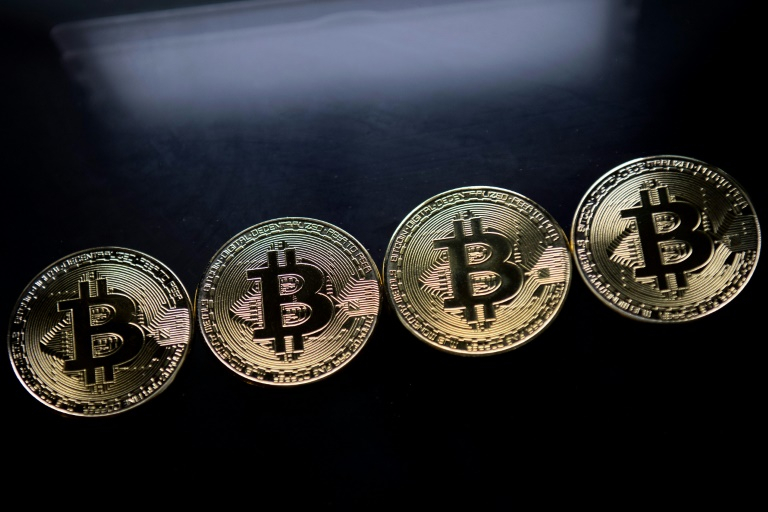Bitcoin futures begin trading on Chicago Mercantile Exchange

This file photo shows gold plated souvenir Bitcoin coins, as the digital currency makes its debut on a major exchange
(© Justin TALLIS – AFP FILE PHOTO)
NEW YORK — Another security based on the price of bitcoin, the digital currency that has soared in value and volatility this 2017, began trading on the Chicago Mercantile Exchange (CME) on Sunday.
The CME Group, which owns the exchange, opened up bitcoin futures for trading at 6 p.m. EST on Sunday. The futures contract that expires in January 2018 opened at $20,650, then slipped back to $19,480 at 6:45 p.m. EST, down $20.
The CME futures, like the ones that CME competitor the Chicago Board Options Exchange (Cboe) started trading last week, do not involve actual bitcoin. The CME’s futures will track an index of bitcoin prices pulled from several private exchanges. The Cboe’s futures track the price of bitcoin prices on the particular private exchange known as Gemini.
Each contract sold on the CME will be for five bitcoin.
Article continues after this advertisementAs bitcoin’s price has skyrocketed this 2017, largely under its own momentum, interest on Wall Street has grown. The virtual currency was trading below $1,000 at the beginning of the year, and rose to more than $19,000 on some exchanges in the days leading up to its debut on the Cboe and CME.
Article continues after this advertisementBut the growing interest in bitcoin has raised questions on whether its value has gotten too frothy. The Securities and Exchange Commission put out a statement last week warning investors to be careful with any investment in bitcoin or other digital currencies. Further, the Commodities Futures Trading Commission has proposed regulating bitcoin like a commodity, not unlike gold, silver, platinum or oil.
Futures are a type of contract where a buyer and seller agree on a price on a particular item to be delivered on a certain date in the future, hence the name. Futures are available for nearly every type of security out there, but are most familiarly used in commodities, like oil, wheat, soy and gold.
Bitcoin is the world’s most popular virtual currency. Such currencies are not tied to a bank or government and allow users to spend money anonymously. They are basically lines of computer code that are digitally signed each time they are traded.
A debate is raging on the merits of such currencies. Some said they serve merely to facilitate money laundering and illicit, anonymous payments. Others said they can be helpful methods of payment, such as in crisis situations where national currencies have collapsed. /kga